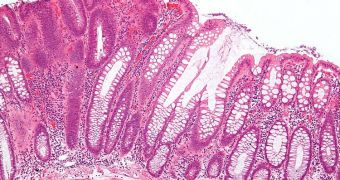A collaboration of researchers in Europe has embarked on a quest to create a new type of cancer diagnostics tool that could increase patients' chances of survival by detecting their condition early on.
The joint, academic-industry effort is the largest of its type ever undertaken. Its primary objective is to develop a new way for diagnosing intestinal cancer. Once this is done, the experts will move to other forms of cancer as well.
One of the main goals the collaboration has is to increase the rate at which the results of scientific studies carried out around the world are translated into real, tangible benefits for cancer sufferers.
At this point, the OncoTrack project is scheduled to last for 5 years. The endeavor is led by the Berlin, Germany-based Max Planck Institute for Molecular Genetics and Bayer Healthcare Pharmaceuticals.
Thus far, more than 60 scientists, including experts from the Uppsala University in Sweden, announced their participation in the research effort, and more could be included in the latter stages of the study.
One of the most notable things about cancer in general is the fact that tumors develop differently in different patients. These differences are largely what determine whether a person lives or dies.
What researchers need to do is develop a method that could diagnose each type of tumor with near-perfect accuracy. The approach should also determine what stage of development the tumor is in.
This will in turn inform oncologist on which drugs, or combination thereof, to use for the individual being investigated. The end goal is personalized medicine, the experts say.
“The key factor in this connection is finding tumor-specific markers to improve diagnostics. The collaboration aims at developing the required techniques and computer models,” says Ulf Landegren.
The expert holds an appointment as a professor of molecular medicine at the UU Rudbeck Laboratory. He and colleague Mats Nilsson, a professor of molecular diagnostics at the university, are both involved in the collaboration.
“A collaboration of this kind between academia and industry provides decisive advantages for addressing the complicated task of using large-scale genetic analysis as a basis for choosing effective cancer treatments and for developing new medicines and treatment regimes,” Nilsson explains.
The team is made up of researchers from Germany, the United Kingdom, France and Austria.

 14 DAY TRIAL //
14 DAY TRIAL //